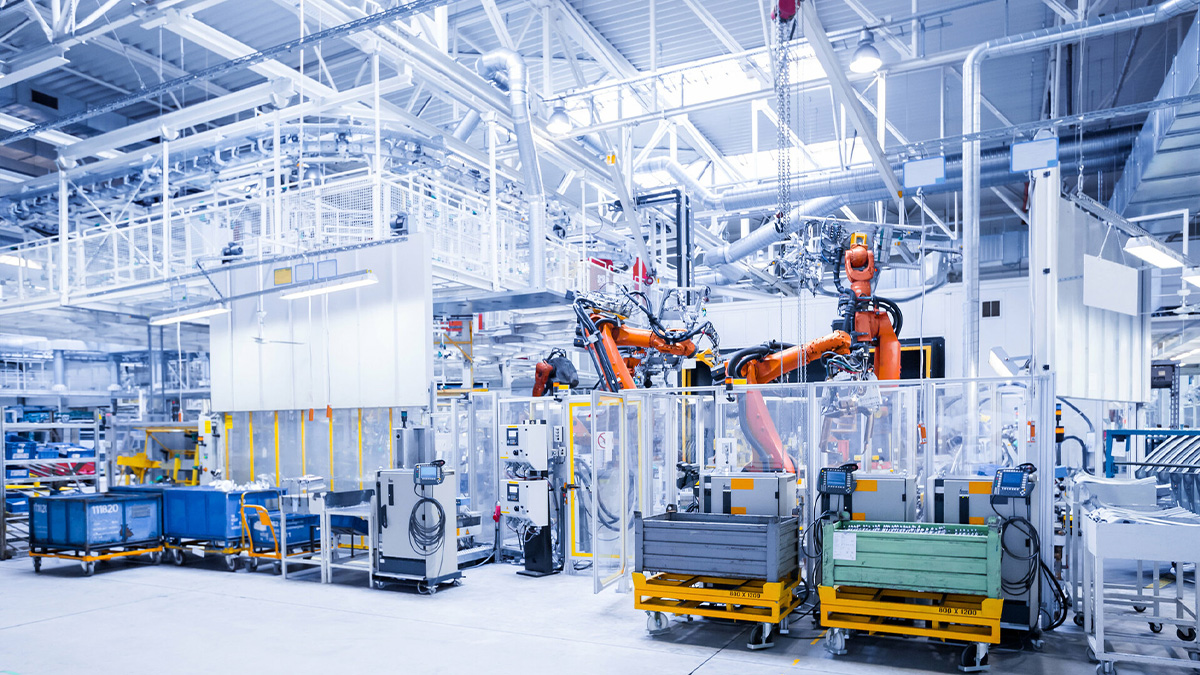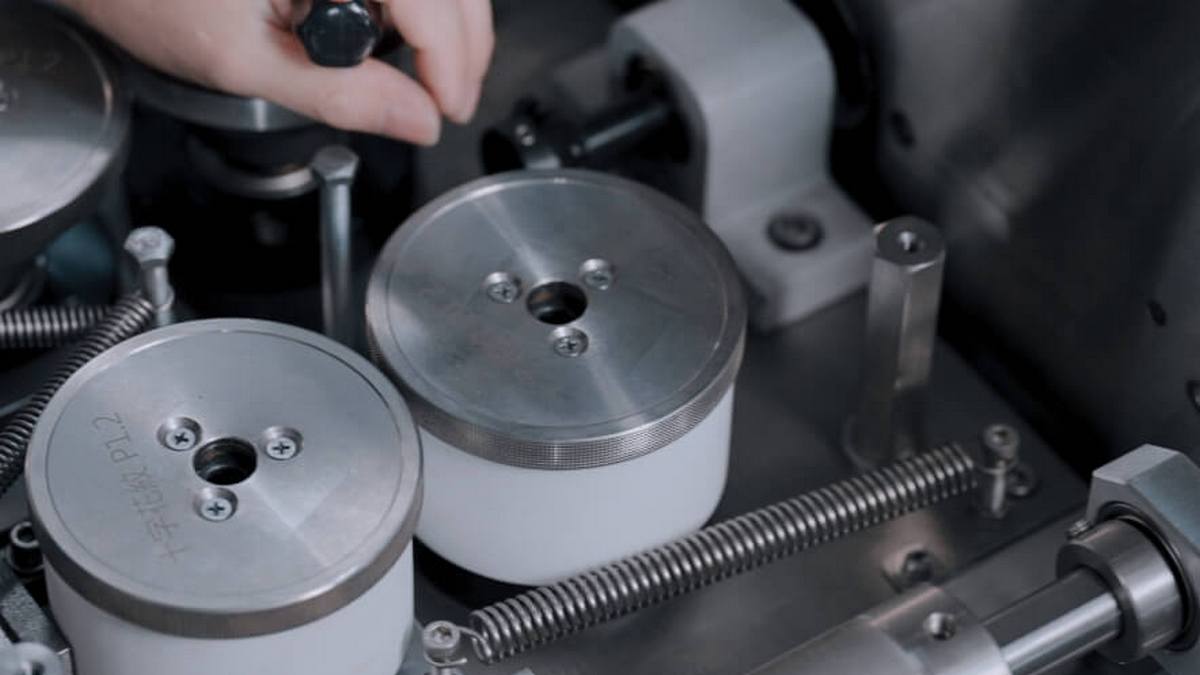Supply chain management (SCM) is the management of the flow of goods and services and includes all processes that transform raw materials into final products. It involves the active streamlining of a business's supply-side activities to maximize customer value and gain a competitive advantage in the marketplace.
What is SCM?
At its most basic level, supply chain management (SCM) refers to the management of goods, materials and financial processes associated with a product or service, from the procurement of raw materials to the delivery of the final product.
Although many people think of supply chain as the same as logistics, logistics is really just one part of supply chain. Today's digital SCM systems include material handling and software for all parties involved in product or service creation, order fulfillment, and information tracking, such as suppliers, manufacturers, wholesalers, transportation and logistics providers, and retailers.
Supply chain activities involve procurement, product lifecycle management, supply chain planning (including inventory planning and maintenance of corporate assets and production lines), logistics (including transportation and fleet management), and order management. SCM can also be extended to activities involving global trade, such as the management of global suppliers and multinational production processes.
5 Parts of SCM
In SCM, the supply chain manager coordinates the logistics of five important aspects of the supply chain:
- The plan or strategy
- The source (of raw materials or services)
- Manufacturing (focused on productivity and efficiency)
- Delivery and logistics
- The return system (for defective or unwanted products)
The supply chain manager tries to minimize shortages and keep costs down.
SCM History
Supply chains have existed since ancient times, starting with the creation and sale of the first products or services. With the advent of industrialization, SCM has become more complex, enabling companies to produce and deliver goods and services more efficiently. Over time, rapid changes (such as the invention of computers) have brought more complexity to the SCM system. However, for a long time, SCM was still essentially a linear, siloed function managed by supply chain experts.
The Internet, technological innovation, and the explosive growth of the demand-driven global economy changed all of this. Today's supply chains are no longer linear entities. Rather, they are a collection of diverse and complex networks that can be accessed 24/7. At the heart of these networks is the expectation that consumers have that their orders will be fulfilled; when they need them, and how they need them.
We now live in unprecedented times of global commerce and trade, not to mention continuous technological innovation and rapidly changing customer expectations. Today's best supply chain strategies require a demand-driven operating model that enables people, processes and technology to successfully bring together integrated functions to deliver goods and services with extraordinary speed and accuracy.
While SCM has always been the foundation of a business, today's supply chain is more important than ever and a hallmark of business success. Those companies that can effectively manage their supply chains to adapt to today's rapidly changing and technology-oriented business environment will be able to survive and thrive.
What Has Industry 4.0 to Do with SCM?
Today, the process of applying radical new technologies to manufacturing is known as Industry 4.0 or the "Fourth Industrial Revolution." In this latest iteration of industrialization, technologies such as artificial intelligence, machine learning, the Internet of Things, automation and sensors are changing the way companies manufacture, maintain and distribute new products and services. In other words, the foundation on which Industry 4.0 is built is the supply chain.
In Industry 4.0, the way companies apply technology to the supply chain is fundamentally different from how it has been applied in the past. For example, within a maintenance function, businesses often wait until a machine fails to fix it. Smart technology has changed that. We can now predict failures before they happen, and then take steps to prevent them so that the supply chain can move on without interruption. Today's SCMs can use technology to make supply chains and businesses smarter.
Industry 4.0 SCM also offers significant advantages over traditional SCM, as it provides consistent planning and execution, with substantial cost savings. For example, a company operating in a "plan-to-production" model (which must tie product production to customer demand as closely as possible) must create accurate forecasts. This involves processing large amounts of intelligence input to ensure that products are produced to meet market demand without exceeding demand, thereby avoiding costly overstocking. SCM Smart Solutions can help you meet customer needs and financial goals at the same time.
Smarter SCM also has other advantages. For example, it can free up supply chain employees' time to contribute to the business in ways that add value. Better SCM systems automate routine tasks, giving supply chain professionals the tools they need to successfully deliver the products and services they design.
It’s All About Customers
SCM has been improving efficiency and reducing costs in the past. While these requirements have not changed, what has changed is that the customer is now a central role in setting SCM priorities. It has said: "Customer experience is the key to life and death in the supply chain".
Customer loyalty depends on a business' ability to meet customer expectations quickly and accurately. You must coordinate raw materials, manufacturing, logistics and trade, and order management to deliver specified items to customers within a reasonable time. To do this, companies must view their supply chains through the eyes of their customers. It's not just about placing orders with customers on time, it's about being able to do everything at the right time (before, during, and after the order is delivered).
Supply Chains and Agility
Today's supply chains are vast, deep and constantly evolving, which means you need agility to be effective. In the past, supply chains used a one-stop model to meet business and customer needs that was largely immune to change. Consumers now have multiple options for purchasing in stores, online, and other channels. They also expect an increase in the level of customization. An agile supply chain can deliver on these expectations.
Not only that, but supply chain sourcing has also become very flexible. For example, geopolitical and economic developments can significantly affect manufacturing supply chains. If a manufacturer needs aluminum but cannot get it from one supplier due to trade policies, the manufacturer must be able to move quickly to source elsewhere. The ability to quickly reconfigure your supply chain is key to successfully resolving such situations. Sensitivity is the key to enabling this type of instant reconfiguration.
Challenges in supply chains are not limited to efficiency and cost management issues. Changes in circumstances can also affect compliance. The SCM system must be flexible enough to mitigate all impacts of supply chain changes, including regulatory changes. A smart SCM system can help you increase efficiency and reduce costs while meeting ever-changing legal requirements.
The Vision of SCM
The supply chain of the future is all about responsiveness and customer experience, which you will understand and manage in a network rather than a linear model. Every aspect of the web must adapt to consumer needs, while also addressing factors such as sourcing, trade policies, modes of transport, and more.
More and more advanced technologies will be used to increase the transparency and visibility of the entire network, and further realize the utilization of connectivity and SCM. Taking into account consumer demand, the entire SCM planning function will become more intelligent. Adaptability will be mandatory.
In the past, supply chain planning was a regular business activity. In the future, it will be an ongoing activity. Future SCM systems will also bring a closer relationship between planning and execution, which is not the current situation for most businesses. The need for speed and accuracy in SCM will only increase. Ensure your supply chain is future-ready with intelligent SCM system support.














